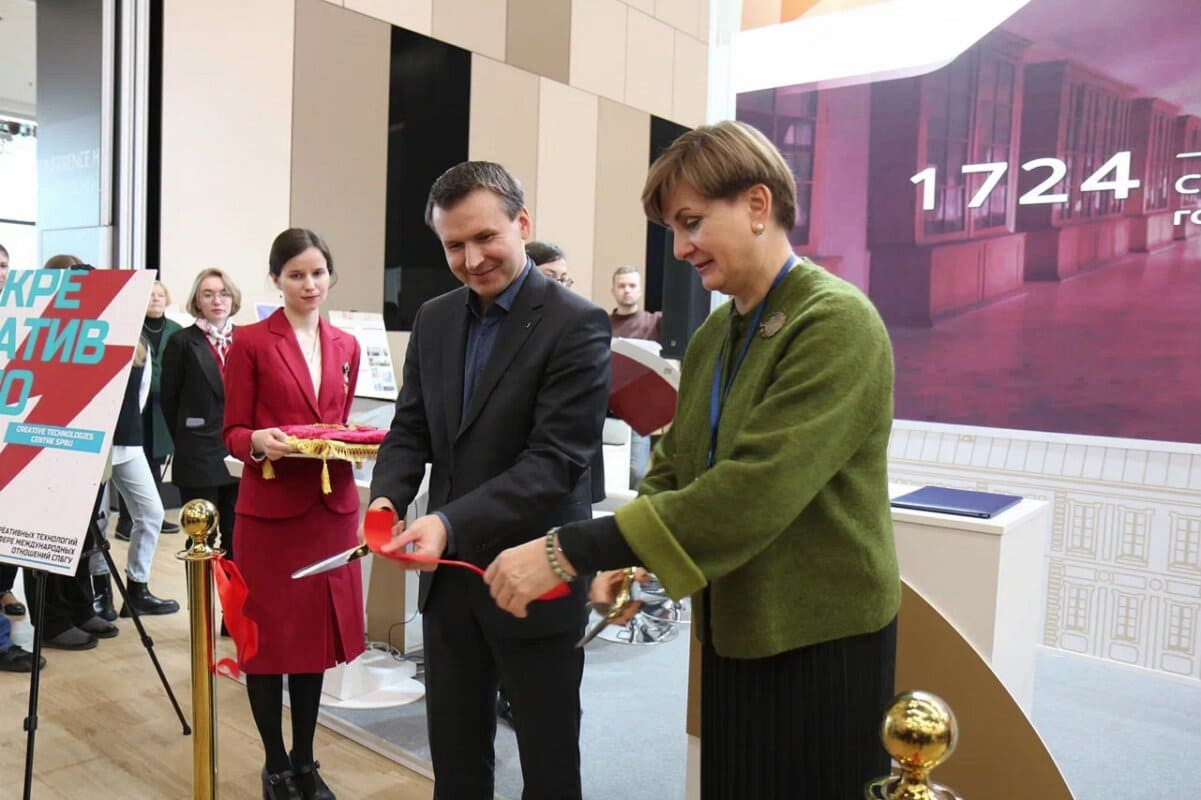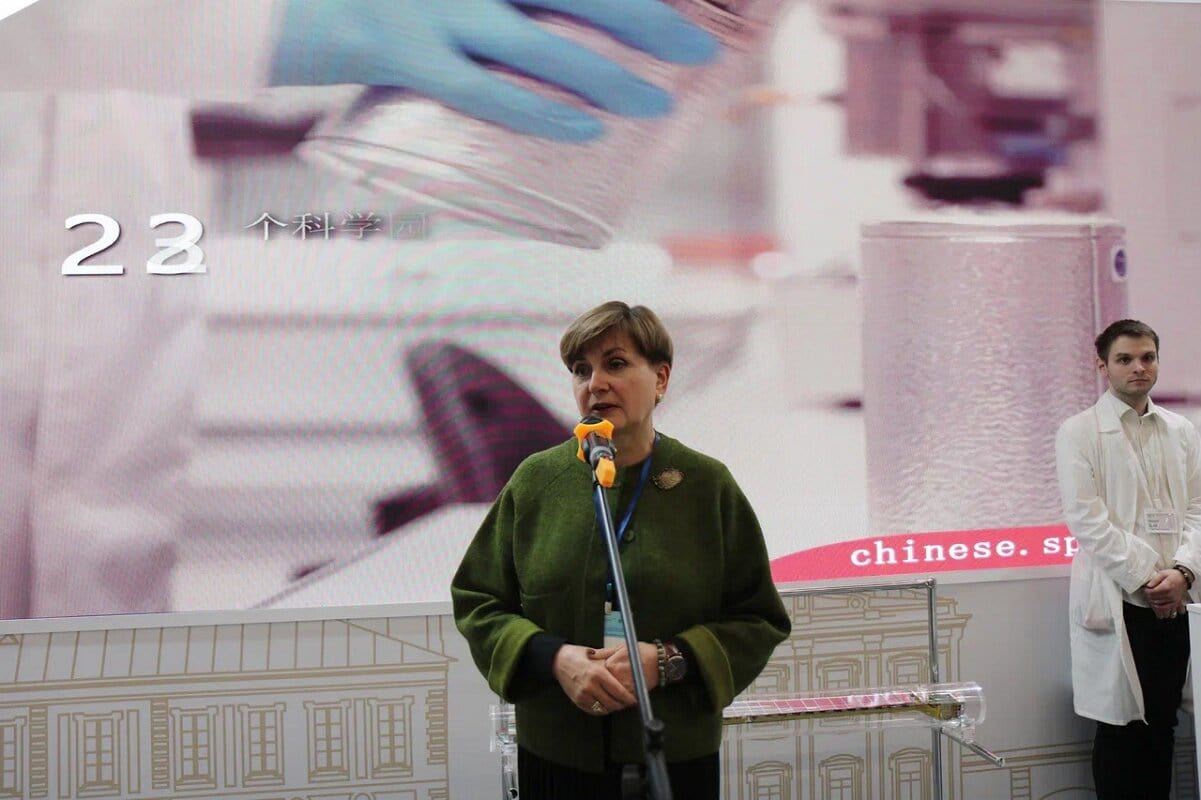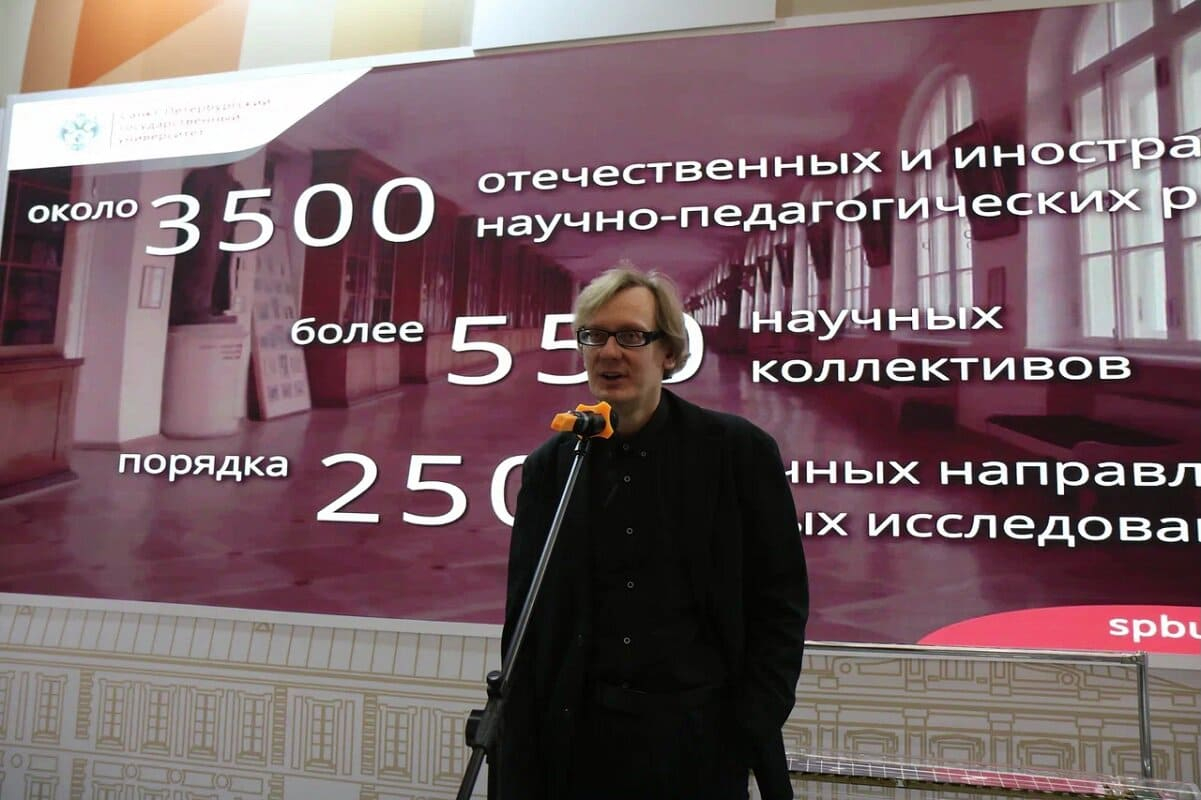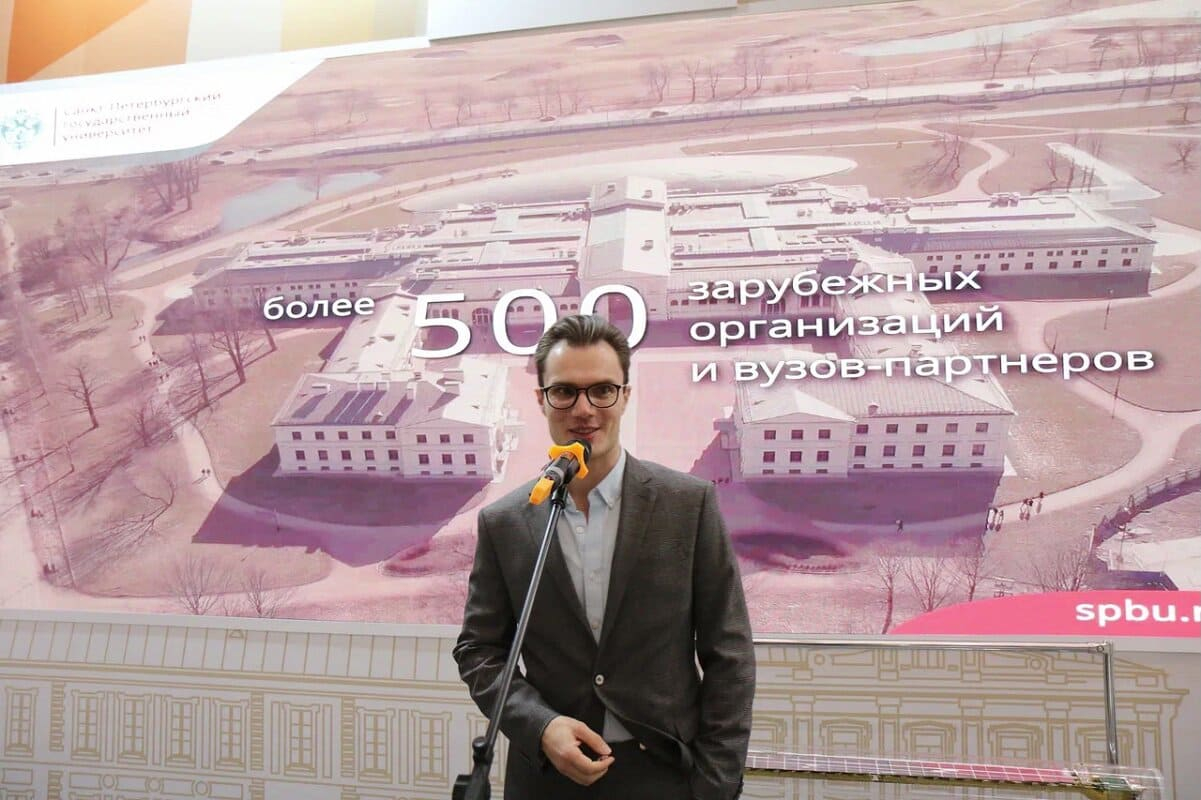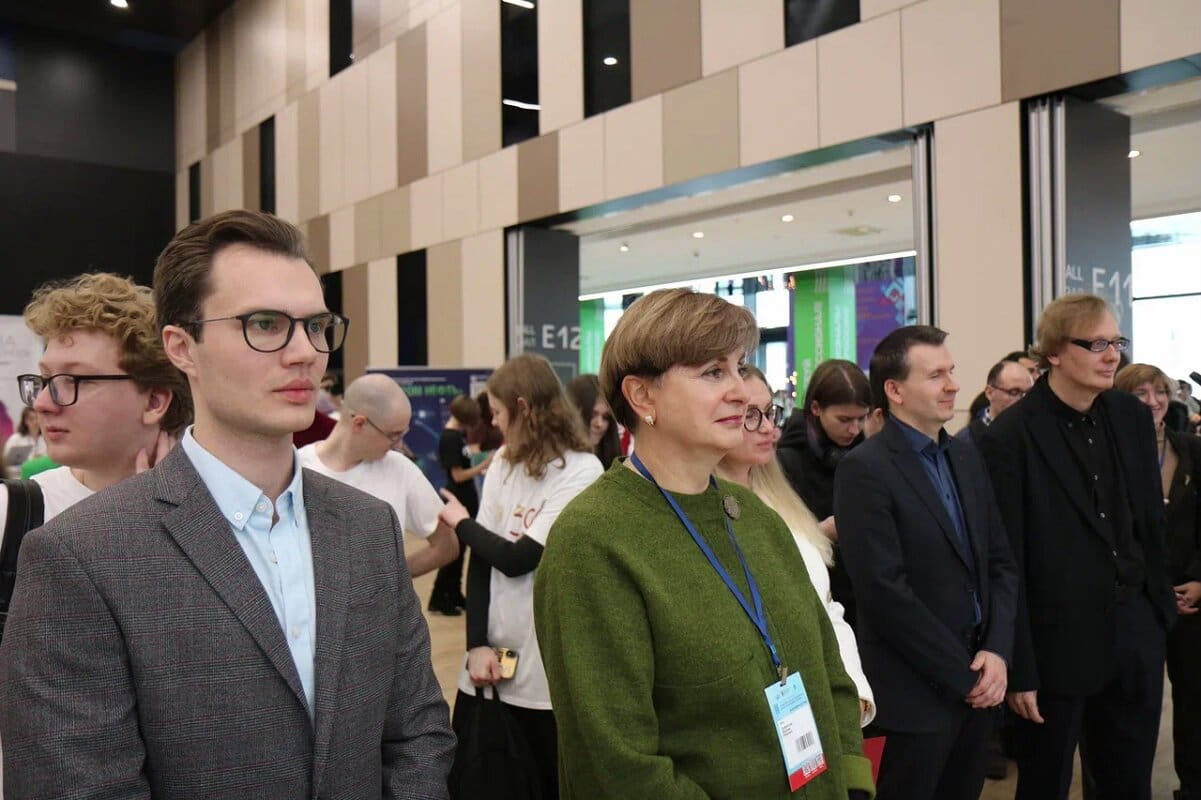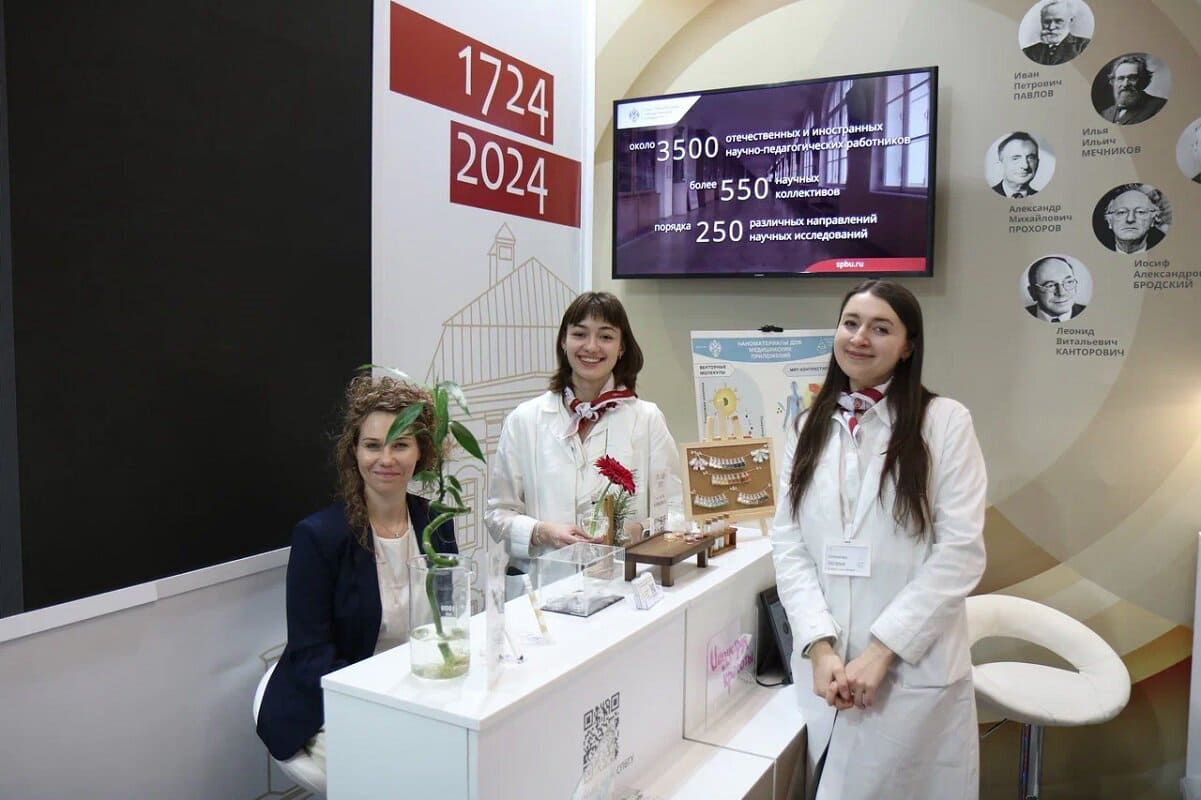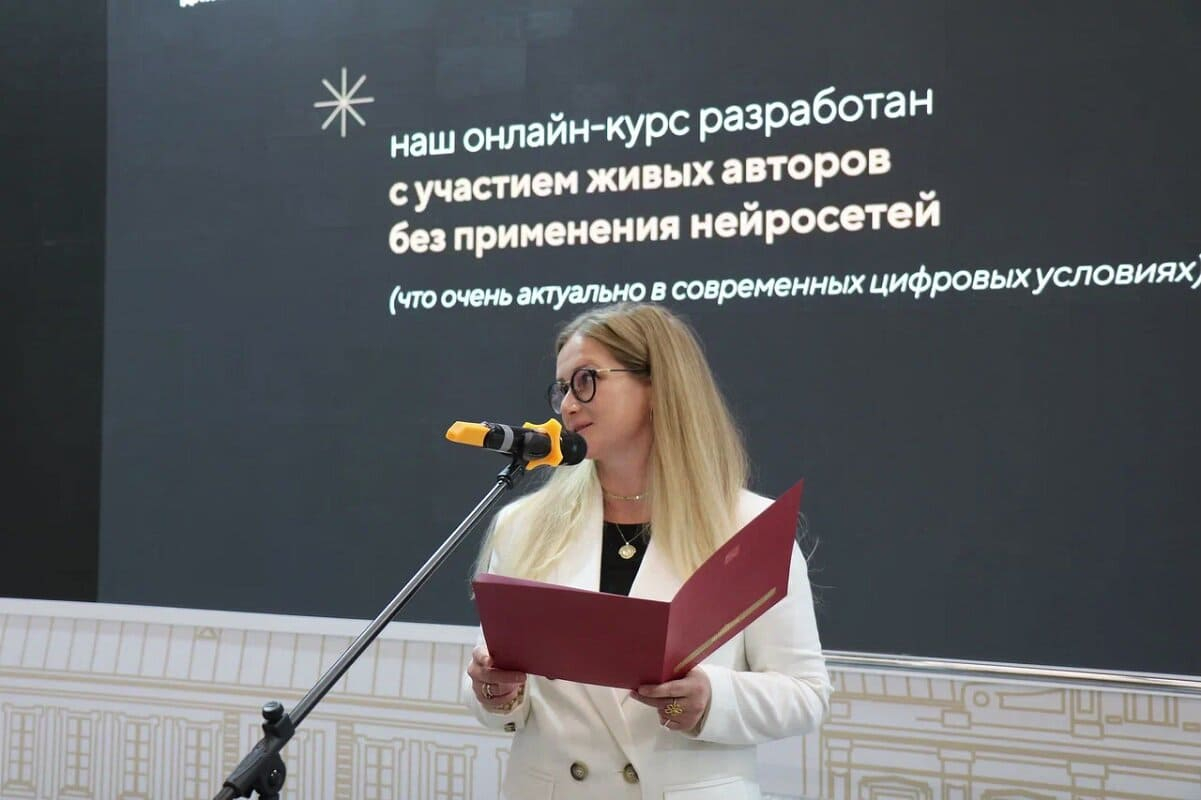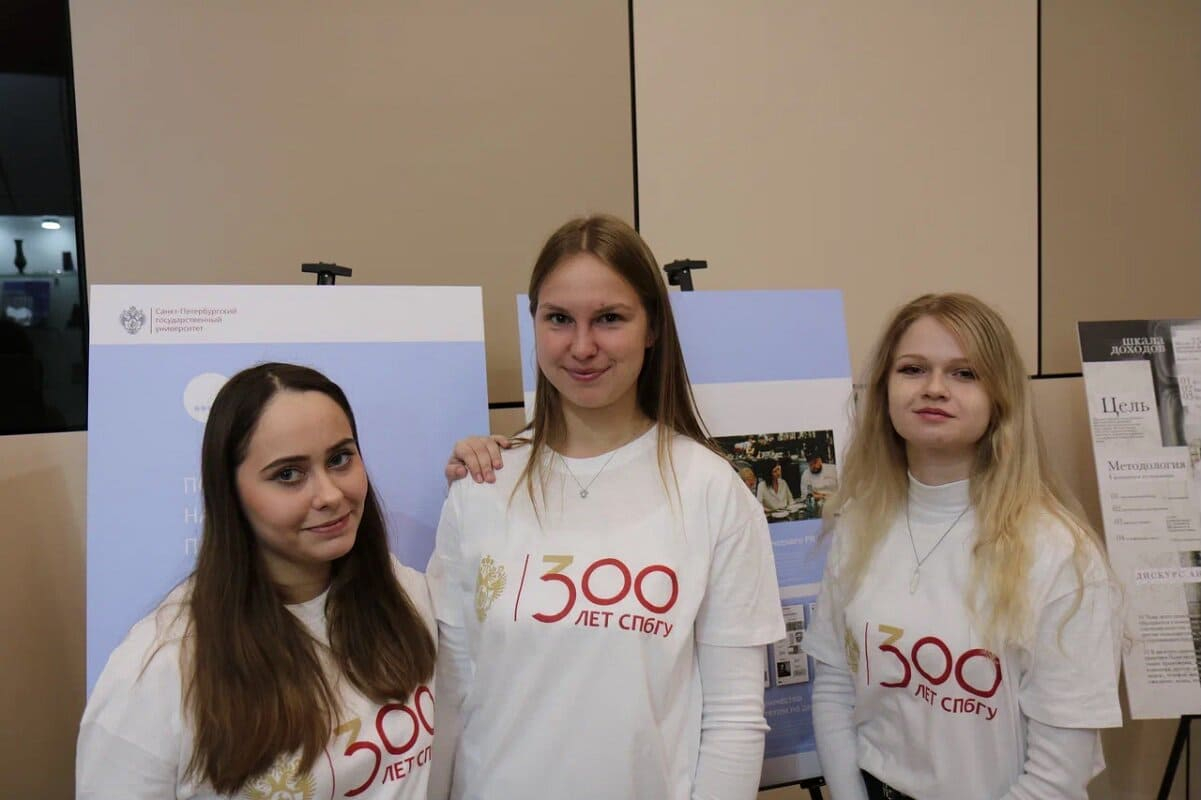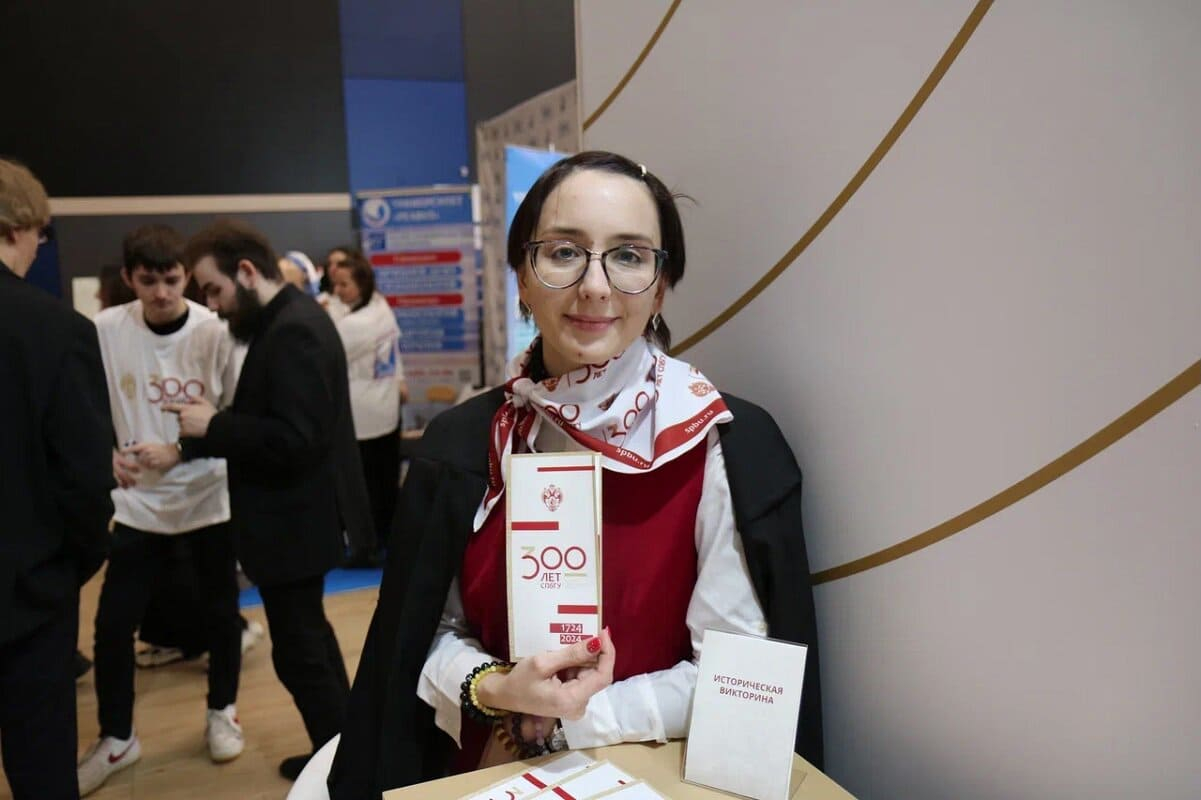Creativity and technology: St Petersburg University presents a new University Clinic
The opening ceremony of the Clinic, known as the Centre for Creative Technology in International Relations at St Petersburg University, has taken place within the framework of the St Petersburg International Scientific and Educational Salon.
Evgeny Grigoriev, Chairperson of the Committee for External Relations of St Petersburg, congratulated the University on the opening of the new Clinic. The congratulation was read by Marianna Borisova, Press Secretary of the Committee for External Relations. ‘Teaching information security and fact-checking methodology, providing a platform for the development of the digital educational environment is a great impetus to the development of the huge ideological potential of students, allowing them to keep up with the times and meet the challenges of modernity’, the congratulatory message reads.
Speaking about the current stage of the formation of the University Clinics, Marina Lavrikova, Senior Vice-Rector for Academic Activities of St Petersburg University, noted that there are currently almost 20 educational Clinics in various fields of training. She also underlined the uniqueness of such projects for university and academic education. According to Marina Lavrikova, the clinical approach is a distinctive feature of the education that students receive at St Petersburg University.
Today we are announcing to the whole world the introduction of a clinical approach for students in areas related to international relations.
Marina Lavrikova, Senior Vice-Rector for Academic Activities at St Petersburg University
Roman Liseev, Head of the Centre for Creative Technology in International Relations at St Petersburg University, spoke about the importance of creative technology in modern international relations. ‘The demand for multitasking specialists has increased several times in Russia. And creative technology, where creative and technological processes intersect, as well as new things are born, definitely contribute to the training of such personnel’, said Roman Liseev.
The ceremony was attended by second-year students of St Petersburg University who are enrolled in the master’s programmes "Public Relations as Part of International Relations" and "Artificial Intelligence and International Security". Even before the official opening of the new Clinic, they had implemented a number of creative projects. Elena Samoshina spoke about the video interview "Dialogue with a Neural Network", created by eight different neural networks. Daniil Oleshkevich presented the chatbot "Foma", which provides useful information about the International Relations programme. In her speech, Polina Obriadina noted that these projects complemented the students’ portfolios and helped them find employment in their chosen fields successfully.
St Petersburg University has extensive experience in developing a clinical approach to education. The first Clinic was founded at the end of the 19th century by the outstanding lawyer Dmitrii Meier. Currently, the University has 16 Clinics where students can gain practical skills without interrupting their educational process.
Among the promising projects of the Centre, the creation and promotion of the official page of St Petersburg University on the Chinese social network Weiba was announced. It was noted that students from the People’s Republic of China will be able to play an active role in the process. To promote the project, the Centre for Creative Technology in International Relations is collaborating with the Marketing and Media Communication Department of St Petersburg University.
Additionally, as part of the ceremony, a cooperation agreement was signed between St Petersburg University and the Laboratory of Applied Artificial Intelligence LLC, a partner of the St Petersburg University Linguistic Clinic. Sergei Kiselev, Head of the Laboratory, said in his speech: ‘For me, as the head of a commercial organisation, it is important that talented young professionals receive real lessons in working with new technologies.’
The issue of the development of artificial intelligence has caught the attention of our country’s leadership. Vladimir Putin, President of the Russian Federation, has pointed out that universities that rank highly for training specialists in the field of artificial intelligence, such as St Petersburg University, need to expand their training programmes for personnel and attract top scientists and developers.
Summing up the results of the signing ceremony, Marina Lavrikova, Senior Vice-Rector for Academic Activities of St Petersburg University, emphasised rich traditions and extensive developments in the field of artificial intelligence, which are followed at St Petersburg University. ‘The university has been studying it even before this topic gained media attention. A lot of our scientists are pioneers in the AI-related initiatives,’ she added. Marina Lavrikova also said that ‘High positions of the University in the AI Alliance rankings is not only an honour but also a great responsibility, and St Petersburg University is expanding training in the field of artificial intelligence development.’


